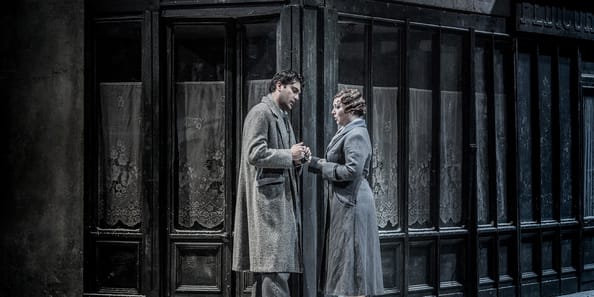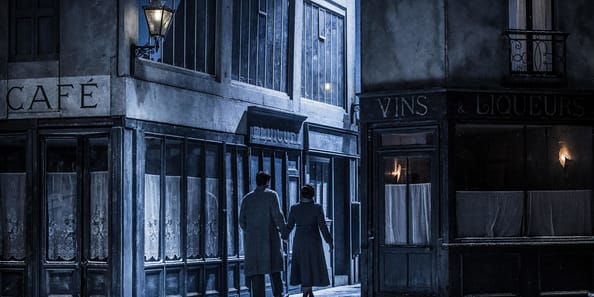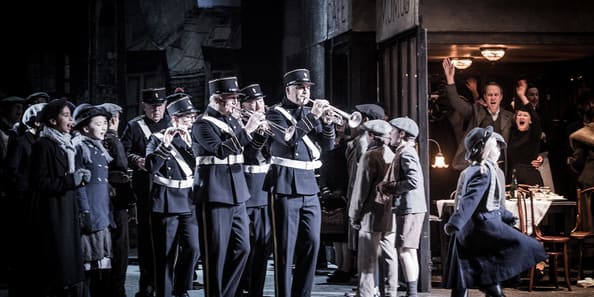An introduction to La bohème
Perhaps opera’s most well-known work, and certainly one of the most beloved, Puccini’s La bohème remains one of the most performed operas worldwide. If you’re a first time opera-goer, or someone who loves a classic romance, we think you’ll love La bohème.
Read up on Puccini’s enduring story of love before seeing La bohème at the South Facing Festival:
Bring your tissues

First performed on February 1, 1896, Puccini’s romantic opera is one of the best known in the repertoire. The story follows Bohemian writer Rodolfo and seamstress Mimì’s whirlwind romance, as both struggle with life as impoverished Parisians.
As well as being one of the best-loved operas to date, the archetypal love story between Mimì and Rodolfo is one of the most famous. Find out more about one of opera’s greatest love stories, and many more, in our guide.
It’s based on a series of short stories by Henri Murger

French novelist Murger, wrote the semi-biographical work Scènes de la vie de bohème (Scenes from bohemian life), having experienced life as a poor writer living in Paris. The character Rodolphe (Rodolfo in the opera), is based on Murger himself, while Mimì was inspired on the author’s mistress, Lucile Louvet. Depictions of Bohemian life were common in the nineteenth century. Although the original meaning referred to Romani travellers, the term was soon romanticised to describe the non-traditional lifestyle of aspiring artists and creatives.
Puccini wasn’t the only composer of the time giving Bohème operatic treatment

In the late 1800s Puccini was in the process of composing his next big opera after Manon Lescaut. Although he had decided on giving Giovanni Verga’s novel La Lupa operatic treatment, he soon abandoned the project in favour of Murger’s novel.
Composer Ruggero Leoncavallo (of Pagliacci fame) had already begun working on his adaptation of Scènes, something that Puccini was well aware of, having already seen Leoncavallo’s libretto. The two composers publicly rowed over who should get to write their Bohème. In the end, both composers staged their works (although Puccini finished a year earlier), deciding that the public would judge their favourite; the rest is history.
Jonathan Miller's masterwork

Inspired by Brassaï’s photographs of 1930s Paris and Parisians, Jonathan Miller’s classic production provides a visual feast with a classic, timeless feel to it. A beautiful production that has proved popular with audiences, there is no better way to experience Puccini’s magnum opus than this.
Witness Puccini’s famous opera for yourself by booking tickets now to see La bohème at the South Facing festival.
Musetta's Waltz from La bohème
Video
Colline's Aria from La bohème
Video



